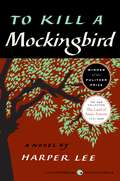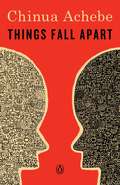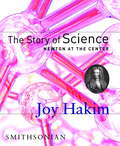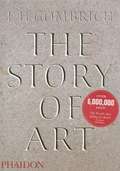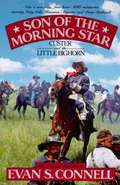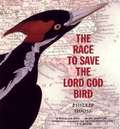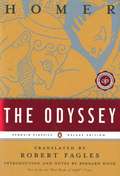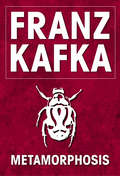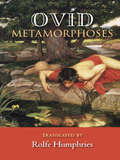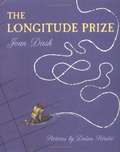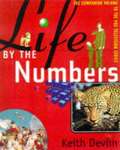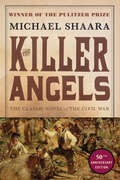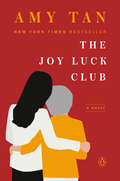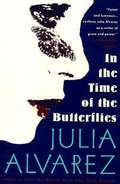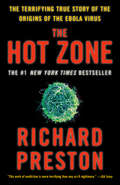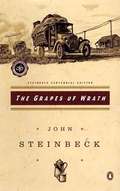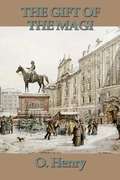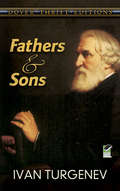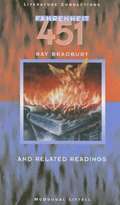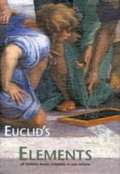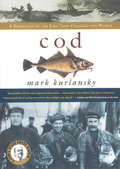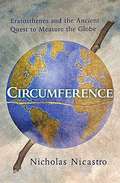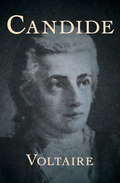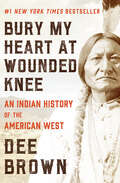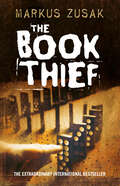Special Collections
Grade 9-10 Common Core Text Exemplars
Description: These books exemplify the level of complexity that Common Core State Standards require students to engage with. While the choices serve to help educators select texts of similar complexity, quality, and range, this not a required reading list. #teachers
- Table View
- List View
To Kill a Mockingbird
by Harper LeeLook for The Land of Sweet Forever, a posthumous collection of newly discovered short stories and previously published essays and magazine pieces by Harper Lee, coming October 21, 2025.Voted America's Best-Loved Novel in PBS's The Great American ReadHarper Lee's Pulitzer Prize-winning masterwork of honor and injustice in the deep South—and the heroism of one man in the face of blind and violent hatredOne of the most cherished stories of all time, To Kill a Mockingbird has been translated into more than forty languages, sold more than forty million copies worldwide, served as the basis for an enormously popular motion picture, and was voted one of the best novels of the twentieth century by librarians across the country. A gripping, heart-wrenching, and wholly remarkable tale of coming-of-age in a South poisoned by virulent prejudice, it views a world of great beauty and savage inequities through the eyes of a young girl, as her father—a crusading local lawyer—risks everything to defend a black man unjustly accused of a terrible crime.
Things Fall Apart
by Chinua AchebeTHINGS FALL APART tells two overlapping, intertwining stories, both of which center around Okonkwo, a "strong man" of an Ibo village in Nigeria.
The first of these stories traces Okonkwo's fall from grace with the tribal world in which he lives, and in its classical purity of line and economical beauty it provides us with a powerful fable about the immemorial conflict between the individual and society.
The second story, which is as modern as the first is ancient, and which elevates the book to a tragic plane, concerns the clash of cultures and the destruction of Okonkwo's world through the arrival of aggressive, proselytizing European missionaries.
These twin dramas are perfectly harmonized, and they are modulated by an awareness capable of encompassing at once the life of nature, human history, and the mysterious compulsions of the soul.
THINGS FALL APART is the most illuminating and permanent monument we have to the modern African experience as seen from within.
[This text is listed as an example that meets Common Core Standards in English language arts in grades 9-10 at http://www.corestandards.org.]
The Story of Science
by Joy HakimIn volume two, students will watch as Copernicus's systematic observations place the sun at the center of our universe--to the dismay of establishment thinkers. After students follow the achievements and frustrations of Galileo, Kepler, and Descartes, they will appreciate the amazing Isaac Newton, whose discoveries about gravity, motion, colors, calculus, and Earth's place in the universe set the stage for modern physics, astronomy, mathematics, and chemistry.In the three-book The Story of Science series, master storyteller Joy Hakim narrates the evolution of scientific thought from ancient times to the present. With lively, character-driven narrative, Hakim spotlights the achievements of some of the world's greatest scientists and encourages a similiar spirit of inquiry in readers. The books include hundreds of color photographs, charts, maps, and diagrams; informative sidebars; suggestions for further reading; and excerpts from the writings of great scientists.
The Story of Art (16th edition)
by E. H. GombrichThis text is the 16th revised and updated edition of this introduction to art, from the earliest cave paintings to experimental art. Eight new artists from the modern period have been introduced. They are: Corot, Kollwitz, Nolde, de Chirico, Brancussi, Magritte, Nicolson and Morandi. A sequence of new "endings" have been added, and the captions are now fuller, including the medium and dimension of the works illustrated. [This text is listed as an example that meets Common Core Standards in English language arts in grades 9-10 at http://www.corestandards.org.]
Son of the Morning Star
by Evan S. ConnellPart anthropological study of Plains Indian life, part military history, and part character study of the principal actors in the Battle of the Little Bighorn, Evan Connell's work presents the first truly balanced account of Custer's career. [This text is listed as an example that meets Common Core Standards in English language arts in grades 9-10 at http://www.corestandards.org.]
The Race to Save the Lord God Bird
by Phillip HooseThe tragedy of extinction is explained through the dramatic story of a legendary bird, the ivory-billed woodpecker, and of those who tried to possess it, paint it, shoot it, sell it, and, in a last-ditch effort, save it. A powerful saga that sweeps through two hundred years of history, it introduces artists like John James Audubon, bird collectors like William Brewster, and finally a new breed of scientist in Cornell's Arthur A. "Doc" Allen and his young ornithology student, James Tanner, whose quest to save the ivory-bill culminates in one of the first great conservation showdowns in U.S. history, an early round in what is now a worldwide effort to save species. As hope for the ivory-bill fades in the United States, the bird is last spotted in Cuba in 1987, and Cuban scientists join in the race to save it. All this, plus Mr. Hoose's wonderful story-telling skills, comes together to give us what David Allen Sibley, author of The Sibley Guide to Birds calls "the most thorough and readable account to date of the personalities, fashions, economics, and politics that combined to bring about the demise of the ivory-billed woodpecker." [This text is listed as an example that meets Common Core Standards in English language arts in grades 9-10 at http://www.corestandards.org.]
The Odyssey
by HomerRobert Fagles, winner of the PEN/Ralph Manheim Medal for Translation and a 1996 Academy Award in Literature from the American Academy of Arts and Letters presents us with Homer's best-loved and most accessible poem in a stunning new modern-verse translation.
"Sing to me of the man, Muse, the man of twists and turns driven time and again off course, once he had plundered the hallowed heights of Troy."
So begins Robert Fagles' magnificent translation of the Odyssey, which Jasper Griffin in The New York Times Review of Books hails as "a distinguished achievement."
If the Iliad is the world's greatest war epic, the Odyssey is literature's grandest evocation of everyman's journey through life. Odysseus' reliance on his wit and wiliness for survival in his encounters with divine and natural forces, during his ten-year voyage home to Ithaca after the Trojan War, is at once the timeless human story and an individual test of moral endurance.
In the myths and legends that are retold here, Fagles has captured the energy and poetry of Homer's original in a bold, contemporary idiom, and given us an Odyssey to read aloud, to savor, and to treasure for its sheer lyrical mastery.
Renowned classicist Bernard Knox's superb Introduction and textual commentary provide new insights and background information for the general reader and scholar alike, intensifying the strength of Fagles' translation.
This is an Odyssey to delight both the classicist and the public at large, and to captivate a new generation of Homer's students.
[This text is listed as an example that meets Common Core Standards in English language arts in grades 6-8 at http://www.corestandards.org.] .
Metamorphosis
by Franz KafkaGregor Samsa awakes one morning to find himself transformed into a gigantic insect. The story follows Gregor's attempts to adjust to his new reality while maintaining relationships with his family. Kafka's celebrated story was first published in 1915.
Metamorphoses
by OvidThe first and still the best modern verse translation of the Metamorphoses, Humphries' version of Ovid's masterpiece captures its wit, merriment, and sophistication.
Everyone will enjoy this first modern translation by an American poet of Ovid's great work, the major treasury of classical mythology, which has perennially stimulated the minds of men. In this lively rendering there are no stock props of the pastoral and no literary landscaping, but real food on the table and sometimes real blood on the ground.
Not only is Ovid's Metamorphoses a collection of all the myths of the time of the Roman poet as he knew them, but the book presents at the same time a series of love poems--about the loves of men, women, and the gods. There are also poems of hate, to give the proper shading to the narrative. And pervading all is the writer's love for this earth, its people, its phenomena.
Using ten-beat, unrhymed lines in his translation, Rolfe Humphries shows a definite kinship for Ovid's swift and colloquial language and Humphries' whole poetic manner is in tune with the wit and sophistication of the Roman poet.
[This text is listed as an example that meets Common Core Standards in English language arts in grades 9-10 at http://www.corestandards.org.]
The Longitude Prize
by Joan DashBy the start of the eighteenth century, many thousands of sailors had perished at sea because their captains had no way of knowing longitude, their east-west location. Latitude, the north-south position, was easy enough, but once out of sight of land not even the most experienced navigator had a sure method of fixing longitude. So the British Parliament offered a substantial monetary prize to whoever could invent a device to determine exact longitude at sea. Many of the world's greatest minds tried -- and failed -- to come up with a solution. Instead, it was a country clockmaker named John Harrison who would invent a clock that could survive wild seas and be used to calculate longitude accurately. But in an aristocratic society, the road to acceptance was not a smooth one, and even when Harrison produced not one but five elegant, seaworthy timekeepers, each an improvement on the one that preceded it, claiming the prize was another battle. Set in an exciting historical framework -- telling of shipwrecks and politics -- this is the story of one man's creative vision, his persistence against great odds, and his lifelong fight for recognition of a brilliant invention.
[This text is listed as an example that meets Common Core Standards in English language arts in grades 9-10 at http://www.corestandards.org.]
Winner of the Sibert Honor
Life by the Numbers
by Keith J. DevlinThis companion to the PBS television series offers illustrated proof that mathematics is a vital and creative way of thinking and seeing, without using a single mathematical equation. Explores the range of ways in which scientists, artists, athletes, medical researchers, and others are using mathematics, and profiles present-day male and female pioneers in mathematics and science. Discussions ranging from deep-sea volcanoes to movie special effects and wearable computers are illustrated with color photos and drawings. For general readers high school and up. [This text is listed as an example that meets Common Core Standards in English language arts in grades 9-10 at http://www.corestandards.org.]
The Killer Angels
by Michael ShaaraPULITZER PRIZE WINNER • NEW YORK TIMES BESTSELLER • The &“remarkable&” (Ken Burns), &“utterly absorbing&” (Forbes) Civil War classic that inspired the film Gettysburg, with more than three million copies in print—now in a 50th anniversary edition featuring a new introduction by Jeff Shaara&“My favorite historical novel . . . a superb re-creation of the Battle of Gettysburg, but its real importance is its insight into what the war was about, and what it meant.&”—James M. McPherson In the four most bloody and courageous days of our nation&’s history, two armies fought for two conflicting dreams. One dreamed of freedom, the other of a way of life. Far more than rifles and bullets were carried into battle. There were memories. There were promises. There was love. And far more than men fell on those Pennsylvania fields. Bright futures, untested innocence, and pristine beauty were also the casualties of war. Michael Shaara&’s Pulitzer Prize–winning masterpiece is unique, sweeping, unforgettable—the dramatic story of the battleground for America&’s destiny.
The Joy Luck Club
by Amy TanAmy Tan’s beloved, New York Times bestselling tale of mothers and daughters
Four mothers, four daughters, four families whose histories shift with the four winds depending on who's "saying" the stories. In 1949 four Chinese women, recent immigrants to San Francisco, begin meeting to eat dim sum, play mahjong, and talk. United in shared unspeakable loss and hope, they call themselves the Joy Luck Club. Rather than sink into tragedy, they choose to gather to raise their spirits and money. "To despair was to wish back for something already lost. Or to prolong what was already unbearable." Forty years later the stories and history continue.
With wit and sensitivity, Amy Tan examines the sometimes painful, often tender, and always deep connection between mothers and daughters. As each woman reveals her secrets, trying to unravel the truth about her life, the strings become more tangled, more entwined. Mothers boast or despair over daughters, and daughters roll their eyes even as they feel the inextricable tightening of their matriarchal ties. Tan is an astute storyteller, enticing readers to immerse themselves into these lives of complexity and mystery.
In the Time of the Butterflies
by Julia AlvarezSet during the waning days of the Trujillo dictatorship in the Dominican Republica in 1960, this extraordinary novel tells the story of the Mirabal sisters, three young wives and mothers who are assassinated after visiting their jailed husbands. [This text is listed as an example that meets Common Core Standards in English language arts in grades 9-10 at
The Hot Zone
by Richard PrestonThe bestselling landmark account of the first emergence of the Ebola virus. Now a mini-series drama starring Julianna Margulies, Topher Grace, Liam Cunningham, James D'Arcy, and Noah Emmerich on National Geographic.A highly infectious, deadly virus from the central African rain forest suddenly appears in the suburbs of Washington, D.C. There is no cure. In a few days 90 percent of its victims are dead. A secret military SWAT team of soldiers and scientists is mobilized to stop the outbreak of this exotic "hot" virus. The Hot Zone tells this dramatic story, giving a hair-raising account of the appearance of rare and lethal viruses and their "crashes" into the human race. Shocking, frightening, and impossible to ignore, The Hot Zone proves that truth really is scarier than fiction.
The Grapes Of Wrath
by John SteinbeckThe Grapes of Wrath is a landmark of American literature. A portrait of the conflict between the powerful and the powerless, of one man's fierce reaction to injustice, and of one woman's stoical strength, the novel captures the horrors of the Great Depression and probes into the very nature of equality and justice in America.
Although it follows the movement of thousands of men and women and the transformation of an entire nation, The Grapes of Wrath is also the story of one Oklahoma family, the Joads, who are driven off their homestead and forced to travel west to the promised land of California.
Out of their trials and their repeated collisions against the hard realities of an America divided into Haves and Have-Nots evolves a drama that is intensely human yet majestic in its scale and moral vision, elemental yet plainspoken, tragic but ultimately stirring in its human dignity. First published in 1939, The Grapes of Wrath summed up its era in the way that Uncle Tom's Cabin summed up the years of slavery before the Civil War.
Sensitive to fascist and communist criticism, Steinbeck insisted that "The Battle Hymn of the Republic" be printed in its entirety in the first edition of the book-which takes its title from the first verse: "He is trampling out the vintage where the grapes of wrath are stored. " At once a naturalistic epic, captivity narrative, road novel, and transcendental gospel, Steinbeck's fictional chronicle of the Dust Bowl migration of the 1930s is perhaps the most American of American Classics.
[This text is listed as an example that meets Common Core Standards in English language arts in grades 9-10 at http://www.corestandards.org.]
The Gift of the Magi
by O. HenryThe classic holiday tale of love, devotion, and the art of giving--written by one of the world's best-known short-story authors--will delight those both new to and familiar with this timeless narrative.
Fathers and Sons
by Ivan TurgenevConsidered one of Ivan Turgenev's finest works, Fathers and Sons was the first of the great nineteenth-century Russian novels to achieve international renown.
A stirring tale of generational conflict during a period of social revolution, it vividly depicts the friction between liberal and conservative thought and the rise of the radical new philosophy of nihilism. Set in Russia during the 1860s against the backdrop of the liberation of the serfs, the story concerns the clash of older aristocrats with the new democratic intelligentsia.
The impressionable young student Arkady Kirsanoff arrives home in the company of his friend Bazarov, a cynical biologist. Arkady's father and uncle, already distressed by the upheaval of the peasants, grow increasingly irritated at Bazarov's outspoken nihilism and his ridicule of the conventions of state, church, and home. The young friends, bored by the rustic life of the Kirsanoff estate, venture off to the provincial capital in search of amusement. There they encounter both romance and alienation.
Fahrenheit 451 and Related Readings
by Ray BradburyFahrenheit 451 visualizes a terrifying future in which the job of firemen is to burn books. The Related Readings include The Portable Phonograph, short story by Walter Van Tilburg Clark; "You Have Insulted Me", letter by Kurt Vonnegut; Burning a Book, poem by William Stafford; A Summer's Reading, short story by Bernard Malamud; The Paters on Public Library, memoir by Judith Ortiz Cofer; The Phoenix, short story by Sylvia Townsend Warner.
Euclid's Elements
by Euclid and Thomas L. HeathEuclid's Elements has stood for well over two millennia as the exemplar, not just of classical geometry, but of the axiomatic and deductive structure characteristic of all pure mathematics. Its range goes beyond what we think of as geometry, extending to the general theory of proportions, number theory, and an innovative and ingenious treatment of incommensurability. Euclid speaks to us with a voice as clear and universal as laughter. The simplicity, clarity and elegance of Euclid's proofs and the beautiful sequence of their unfoldings both delight and instruct. They provide a paradigm of what constructing a proof means and an education in how it is done. [This text is listed as an example that meets Common Core Standards in English language arts in grades 9-10 at http://www.corestandards.org.]
Cod
by Mark KurlanskyWars have been fought over it, revolutions have been spurred by it, national diets have been based on it, economies have depended on it, and the settlement of North America was driven by it. Cod, it turns out, is the reason Europeans set sail across the Atlantic, and it is the only reason they could. What did the Vikings eat in icy Greenland and on the five expeditions to America recorded in the Icelandic sagas? Cod -- frozen and dried in the frosty air, then broken into pieces and eaten like hardtack. What was the staple of the medieval diet? Cod again, sold salted by the Basques, an enigmatic people with a mysterious, unlimited supply of cod.Cod is a charming tour of history with all its economic forces laid bare and a fish story embellished with great gastronomic detail. It is also a tragic tale of environmental failure, of depleted fishing stocks where once the cod's numbers were legendary. In this deceptively whimsical biography of a fish, Mark Kurlansky brings a thousand years of human civilization into captivating focus. [This text is listed as an example that meets Common Core Standards in English language arts in grades 9-10 at http://www.corestandards.org.]
Circumference
by Nicholas NicastroHow do you measure the size of the planet you're standing on? "Circumference" is the story of what happened when one man asked himself that very question. Nicholas Nicastro brings to life one of history's greatest experiments when an ancient Greek named Eratosthenes first accurately determined the distance around the spherical earth. In this fascinating narrative history, Nicastro takes a look at a deceptively simple but stunning achievement made by one man, millennia ago, with only the simplest of materials at his disposal. How was he able to measure the land at a time when distance was more a matter of a shrug and a guess at the time spent on a donkey's back? How could he be so confident in the assumptions that underlay his calculations: that the earth was round and the sun so far away that its rays struck the ground in parallel lines? Was it luck or pure scientific genius? Nicastro brings readers on a trip into a long-vanished world that prefigured modernity in many ways, where neither Eratosthenes' reputation, nor the validity of his method, nor his leadership of the Great Library of Alexandria were enough to convince all his contemporaries about the dimensions of the earth. Eratosthenes' results were debated for centuries until he was ultimately vindicated almost 2000 years later, during the great voyages of exploration. "Circumference" is a compelling scientific detective story that transports readers back to a time when humans had no idea how big their world was--and the fate of a man who dared to measure the incomprehensible. [This text is listed as an example that meets Common Core Standards in English language arts in grades 9-10 at http://www.corestandards.org.]
Candide
by VoltaireVoltaire&’s satire of eighteenth-century Europe, hailed as one of the most influential works in the Western canon Candide&’s misfortunes begin when his uncle, a German baron, banishes him for kissing the baron&’s daughter, Cunégonde. Forced to make his own way in the world, Candide goes from conscription in the Bulgar army, to Lisbon, after a harrowing voyage by sea, to the tutelage of the Enlightenment philosopher Pangloss. After an unexpected reunion with his beloved Cunégonde, Candide finds that further misadventure awaits, first through South America and then back in Europe, where he settles in the countryside. Among the most widely renowned texts of western literature, Candide lives on two hundred fifty years since its first publication as a supreme example of political, philosophical, and religious satire whose wit and power of observation have influenced writers for generations. This ebook has been professionally proofread to ensure accuracy and readability on all devices.
Bury My Heart at Wounded Knee
by Dee BrownThe &“fascinating&” #1 New York Times bestseller that awakened the world to the destruction of American Indians in the nineteenth-century West (The Wall Street Journal). First published in 1970, Bury My Heart at Wounded Knee generated shockwaves with its frank and heartbreaking depiction of the systematic annihilation of American Indian tribes across the western frontier. In this nonfiction account, Dee Brown focuses on the betrayals, battles, and massacres suffered by American Indians between 1860 and 1890. He tells of the many tribes and their renowned chiefs—from Geronimo to Red Cloud, Sitting Bull to Crazy Horse—who struggled to combat the destruction of their people and culture. Forcefully written and meticulously researched, Bury My Heart at Wounded Knee inspired a generation to take a second look at how the West was won. This ebook features an illustrated biography of Dee Brown including rare photos from the author&’s personal collection.
The Book Thief
by Markus ZusakIt is 1939. Nazi Germany. The country is holding its breath. Death has never been busier, and will become busier still.
Liesel Meminger is a foster girl living outside of Munich, who scratches out a meager existence for herself by stealing when she encounters something she can’t resist–books. With the help of her accordion-playing foster father, she learns to read and shares her stolen books with her neighbors during bombing raids as well as with the Jewish man hidden in her basement.
In superbly crafted writing that burns with intensity, award-winning author Markus Zusak, author of I Am the Messenger, has given us one of the most enduring stories of our time.
